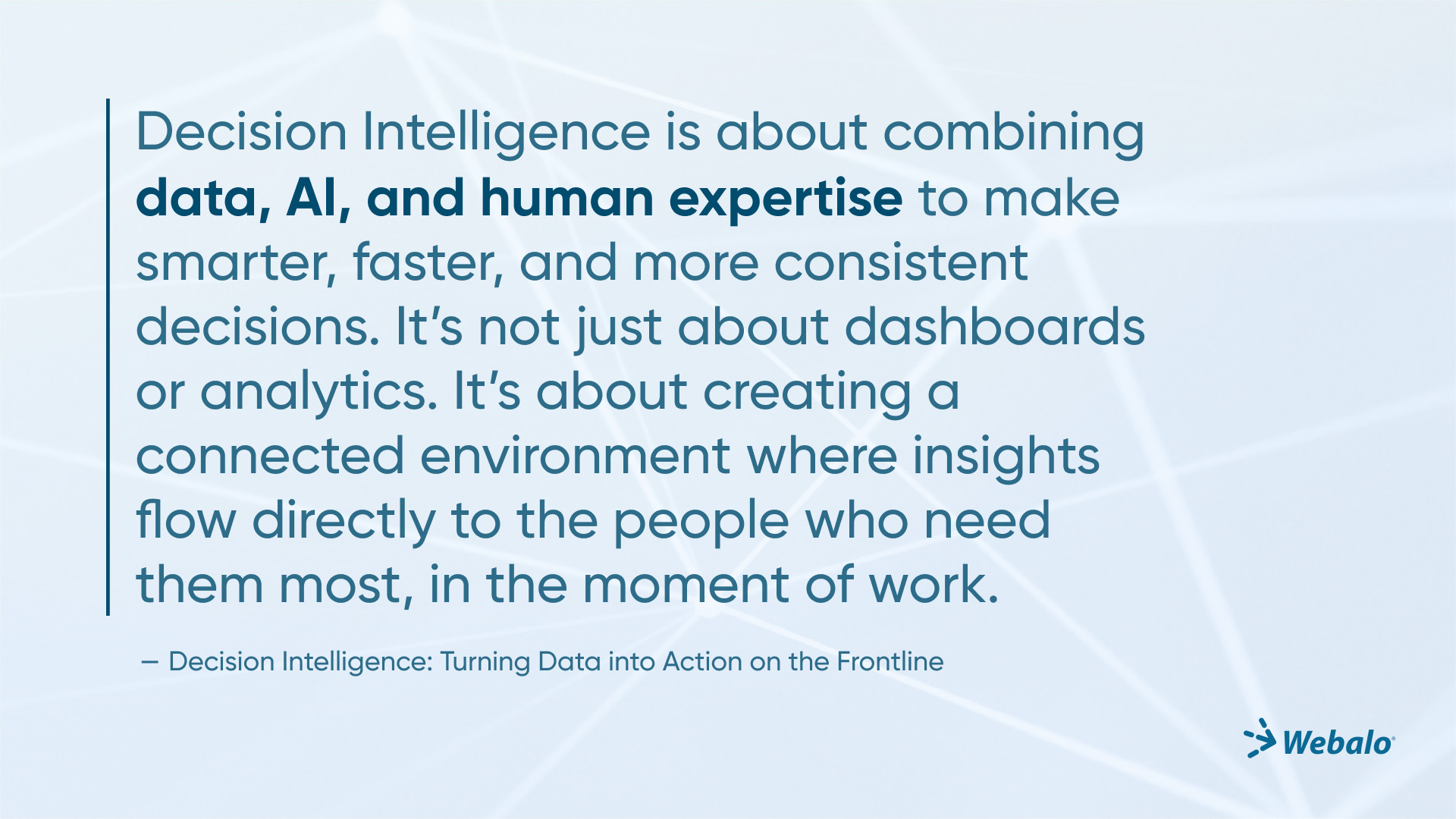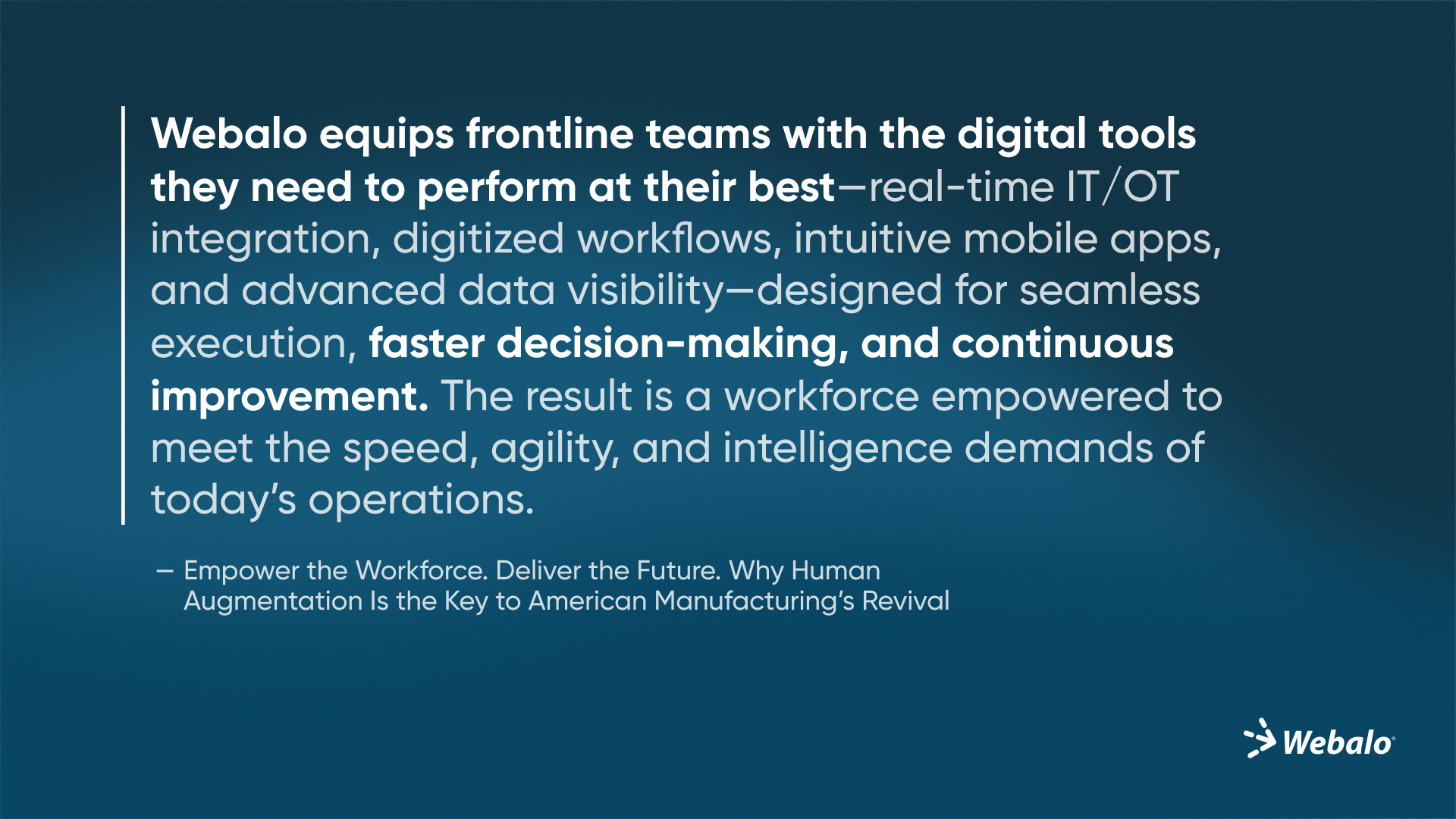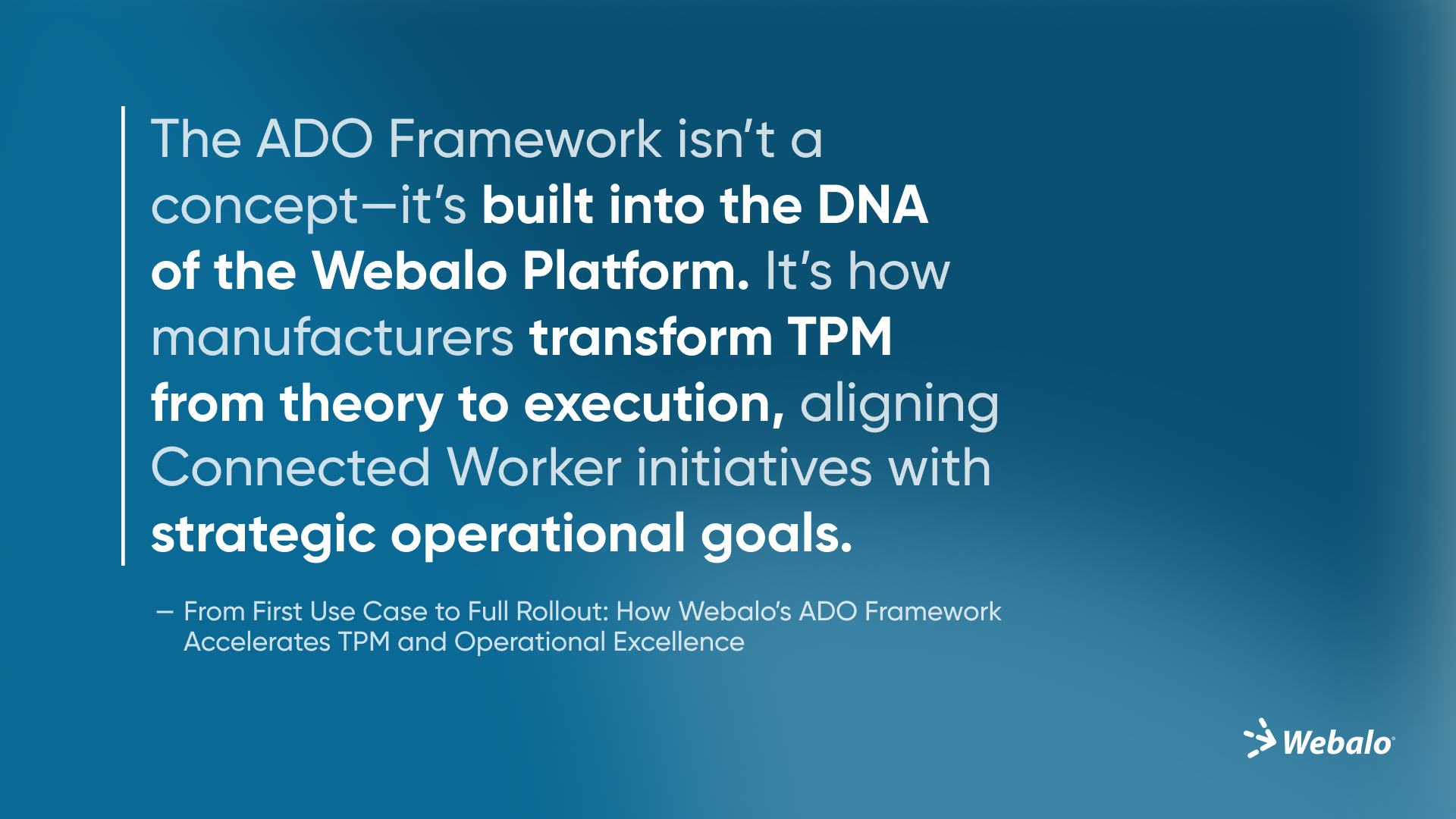Achieving operational goals—from reducing downtime to improving OEE—is more important than ever. That’s where Total Productive Maintenance (TPM) and Connected Worker initiatives intersect. But turning TPM strategies into sustainable results takes more than good intentions and a few digital tools. It requires a structured, scalable approach.
That’s exactly what Webalo’s ADO Framework—Adoption, Deployment, and Operation—delivers.
Bridging TPM and Connected Work with ADO
Built into the Webalo Platform, the ADO Framework isn’t just about digitizing work. It’s about connecting people, processes, and systems in a way that drives measurable improvements in safety, quality, and productivity. Whether you’re reducing unplanned downtime, eliminating minor stops, or empowering operators to take ownership of equipment care, Webalo helps you move from small wins to full operational transformation.


